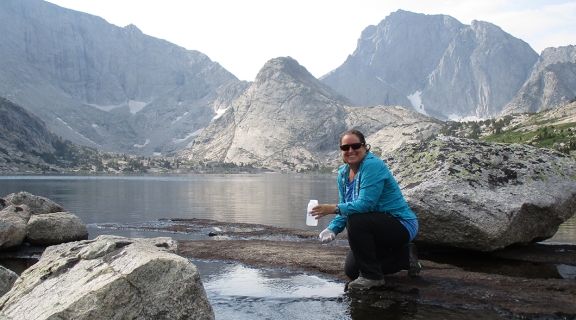
Rosenberg Institute Seminar Series at EOS Center - Leora Nanus
Overview
Leora Nanus, Associate Professor, School of the Environment, SFSU
Sources and Effects of Atmospheric Pollutants on Aquatic Ecosystems in Wilderness Areas of the Western United States
Abstract: The atmospheric deposition of pollutants over recent decades has adversely affected sensitive aquatic and terrestrial habitats in Wilderness areas of the western United States. Aquatic ecosystems in alpine and subalpine environments are particularly vulnerable to natural and human-induced stressors that when combined, have the potential to alter habitat and ecosystem function. Understanding hydrologic and biogeochemical processes in watersheds from alpine to coastal environments is needed to evaluate current and future anthropogenic impacts on water quality and watershed management in a changing climate. I will discuss how stable isotope biogeochemical techniques offer insight to controls on the sources and fate of atmospheric nitrogen (N) deposition in high-elevation watersheds. N isotope results across multiple ecosystem indicators suggest continued and variable anthropogenic contributions of N and has important implications for ecosystem response. I will also discuss modeling critical loads of N deposition for nutrient enrichment in aquatic ecosystems. This research has important implications for critical loads exceedance and continued ecosystem response in sensitive watersheds.
Bio: Leora Nanus is an Associate Professor in the School of the Environment at San Francisco State University. She is a watershed biogeochemist broadly interested in the sustainability of natural resources under climate change and anthropogenic stressors in coastal to montane environments. This includes understanding interactions among atmospheric, hydrologic, and biogeochemical processes and mechanisms of pollutant transport in protected landscapes of California and the western US. She is particularly interested in understanding connections between chemical or physical landscape stressors and ecosystem response in National Parks and wilderness areas of the western United States at multiple spatial and temporal scales.